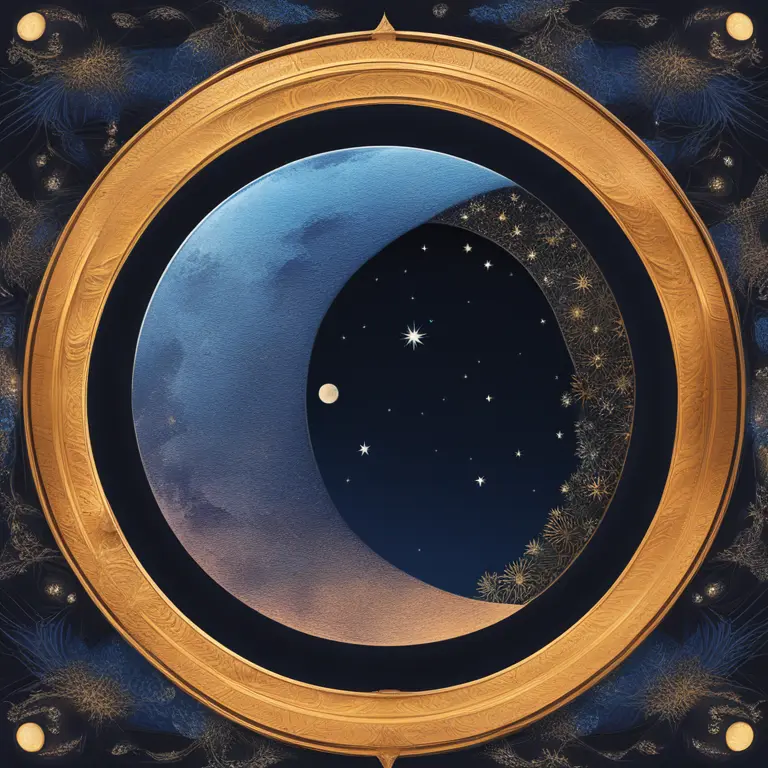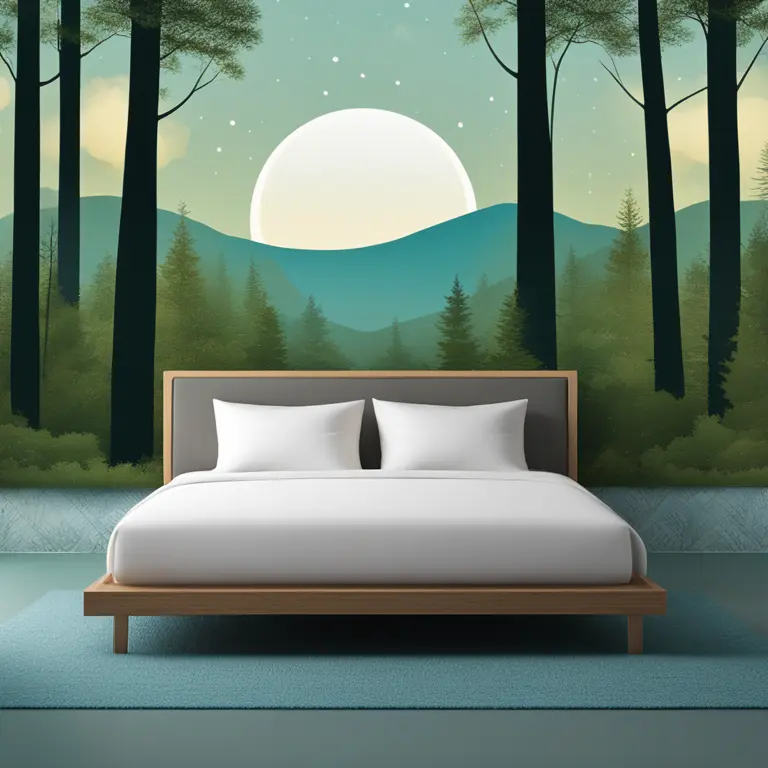
How Moon Phases Impact on Sleep Patterns
Discover how lunar cycles can impact your sleep and learn ways to harmonize your rest with the rhythm of the moon.
article by Priya Deshmukh
The Connection Between Moon Cycles and Sleep
Pondering the effects of the cosmos on human behavior is an age-old practice, and the moon phase is no exception—especially concerning sleep. Various studies suggest a profound connection between the lunar cycle and the quality of our slumber. The waxing and waning of the moon appear to orchestrate a subtle ebb and flow in our nocturnal patterns. As we navigate the celestial influences of the year 2024 and beyond, understanding the moon's potential impact on sleep becomes increasingly relevant to achieving restful nights.

Full Moon and Its Sleep Challenges
The full moon has long been associated with heightened emotions and energy, which can translate into difficulty falling asleep or staying asleep. During the luminous nights of a full moon, sleep disturbances are more commonly reported. This could be a throwback to our ancestors' need to be vigilant when the night was brightest. In modern times, however, this can mean restlessness and reduced sleep efficacy even for individuals who sleep in completely dark rooms.

New Moon and Enhanced Sleep Quality
Conversely, the new moon, the phase when the moon is not visible in the night sky, seems to favor a deeper and more restful sleep. The darkness that accompanies the new moon phase coincides with higher melatonin production—a hormone responsible for regulating sleep. As we adjust our sleep routines, aligning with the new moon periods in 2024 may offer an opportunity to prioritize deep rest, especially for those sensitive to lunar rhythms.

The Impact of Waxing and Waning Phases
As the lunar cycle progresses from a new moon to a full moon (waxing phase) and back again (waning phase), sleep can also wax and wane in quality and duration. The waxing phase may be seen as a time of increasing energy, which might make winding down more of a challenge. While the waning phase often ushers in a sense of release and calm that could enhance one's ability to fall asleep with ease. Tapping into this natural cadence can aid in planning activities and sleep schedules for the year ahead.

Syncing Your Sleep Cycle with the Moon
To synchronize your sleep with the moon's phases, observe the lunar calendar and notice any patterns in your sleep associated with different phases. Introducing certain rituals such as dimming lights in the evening during a full moon or engaging in calming activities can help mitigate potential disruptions. Likewise, harnessing the quietude of the new moon for practices like meditation or gentle yoga before bed may enhance your overall sleep experience.
Modern Considerations and Technology
Today's world is replete with artificial lighting and digital stimuli that can overshadow the moon's influence on our rest. Embracing practices like limiting screen time before bed or using sleep aids such as blackout curtains can help counteract these modern interferences. Furthermore, sleep technology is emerging to help us reconnect with natural rhythms; apps and wearables that track lunar cycles might support individuals in aligning their sleep patterns with the moon's phases in the coming years.
Embracing Lunar Knowledge for Better Sleep
Attuning to the moon's influence is not about esoteric wisdom but about understanding our intrinsic connection to the universe. As we move through the years, the lunar effect on sleep remains a field ripe for exploration and practical application. Embrace lunar knowledge, making it a part of your holistic approach to well-being by considering the moon's phases when reflecting on sleep habits. With each moonrise and set, there might just be a clue to unlocking more restful nights.
Published: 1/19/2024
Modified: 1/19/2024
More predictions
Come back here soon to learn more about yourself and your future


About Moon Phases & Relationship Dynamics
Explore how the changing phases of the moon can influence your connection with your boyfriend and potentially impact your relationship.


The Dance of Sun and Moon Phases: Celestial Rhythms
Explore the synchronous bond between the moon phases and the sun's position in astrology, and how they influence our lives.


The Nighttime Moon Phase: When It’s Visible to Observers
Learn which moon phase graces the night sky and discover its unique characteristics and impact on astrology and personal biorhythms.